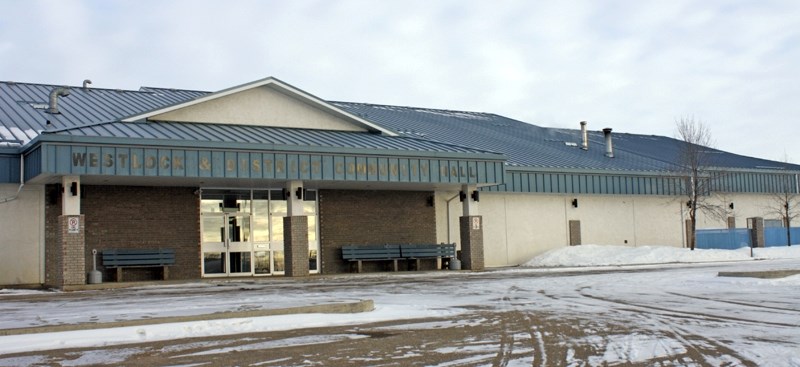The fate of the Westlock and District Community Hall continues to be an issue the hall’s board has wrestled with since its completion in 1991.
Hall past-president Guy Gokiert and current president Michael McIntyre attended the Feb. 22 Westlock County meeting to discuss the next steps needed to maintain the hall in the future.
“The next step is that we were trying to open the door for a frank discussion, between the hall board, the Town of Westlock and the County of Westlock, about how to keep the community hall solvent,” said Gokiert after the meeting.
He stressed the goal of the meeting was to set up a discussion framework and not to approach the county cap in hand.
The hall has been in financial trouble since it was built, Gokiert said, and those troubles have escalated as time has passed. Expenses have increased, while at the same time the ability to fundraise enough to cover those expenses has remained stagnant or decreased.
Reeve Charles Navratil said he appreciated the presentation, but added, “it’s not something that we didn’t know, that the hall was having trouble.”
Since the hall is an entity unto itself, meaning it’s not a town or county initiative, Navratil said the county will continue to follow the hall’s progress going forward and keep tabs on what happens over the coming months.
At present, Gokiert said the hall is operating with an annual deficit of between $10,000-$20,000. Of late, running casino nights has covered this shortfall. However, he said if the income from the casino nights doesn’t increase from its current $18,000-$20,000 every 18 months, he can foresee having to come before the town and county to seek help.
There are two outcomes of that appeal: either the town and county pitch in the money to cover the deficit, or the hall may have to enter bankruptcy.
“Is that going to be a feature that the town and the county would like us to do?” he asked.
With such a possibility looming, Gokiert said the hall board has begun looking at possible scenarios.
The first of these is simply to close up shop and the hall would cease to function.
Option two would be to get the town or county to subsidize the hall’s operations. However, Gokiert recognized this would be a dangerous option because other similar groups could demand funding.
A third alternative would be to get the town or county to help with promoting the hall, which would hopefully increase bookings and thus revenue.
And the fourth choice would be for the town or county to take over the hall, appoint its own board members and assume responsibility for running it.
“These are all possibilities that we have to kick around,” he said. “We have to say to the town and the county what the possibilities are of this happening, this happening and scenario one, two and three and how are we going to address all these issues.”
Furthermore, he said several of these issues may only be able to be discussed when conditions are dire enough that they need to be discussed.
Navratil said he sympathizes with the board’s predicament, but also recognizes that the smaller halls in the area are surviving.
“I know it’s tough to keep the hall running, but we have all our small community halls out in the county and they go ahead and keep things running,” he said. “I know this one, because it’s a lot bigger and the cost is more to keep it going.”
In addition, he said that having the hall is a benefit for when it’s needed, but it’s often too large for the functions Westlock generally sees.
“Do we have enough big functions to warrant the hall?” he asked. “Probably not right now, but when there is a big function, it’s sure beautiful to have the hall.”



